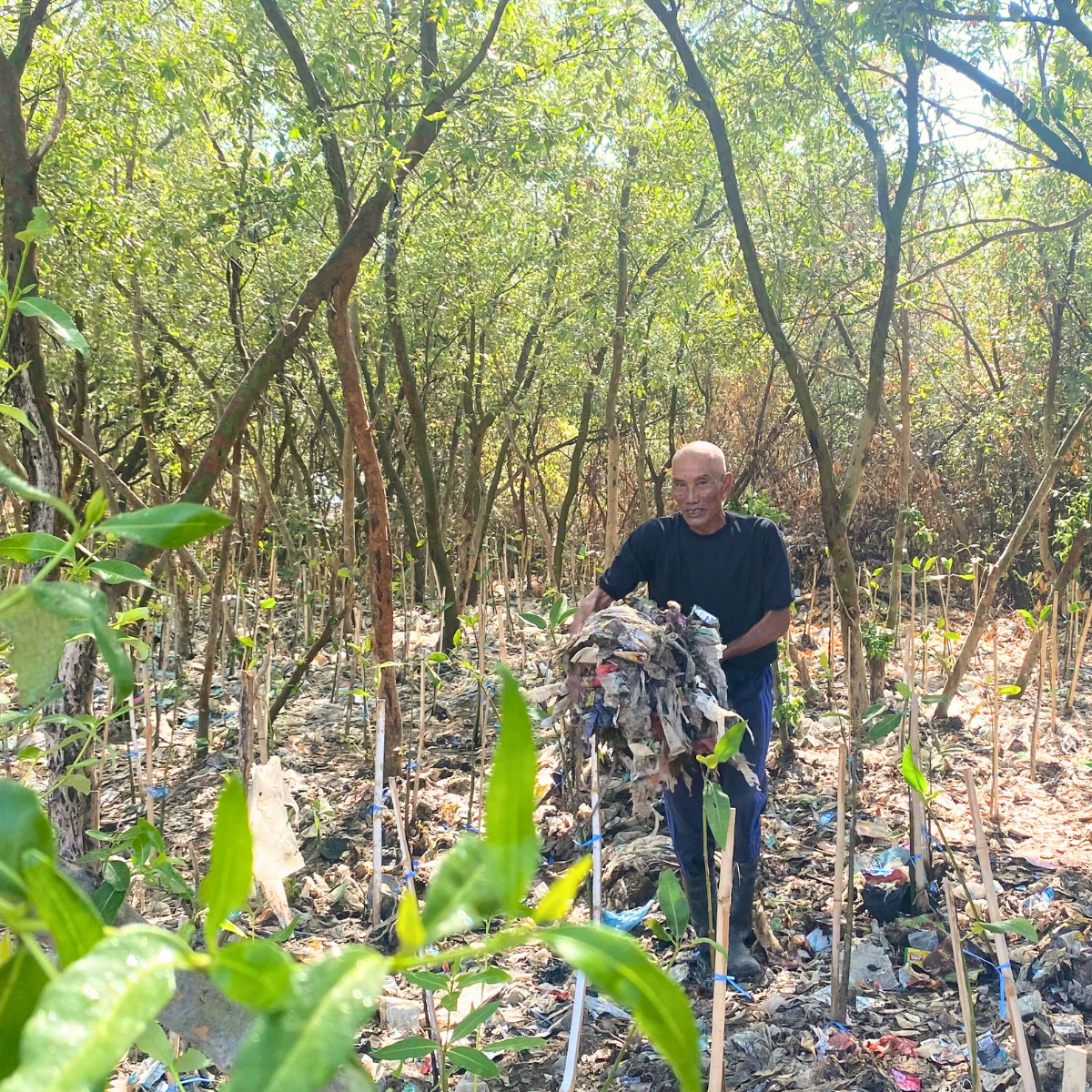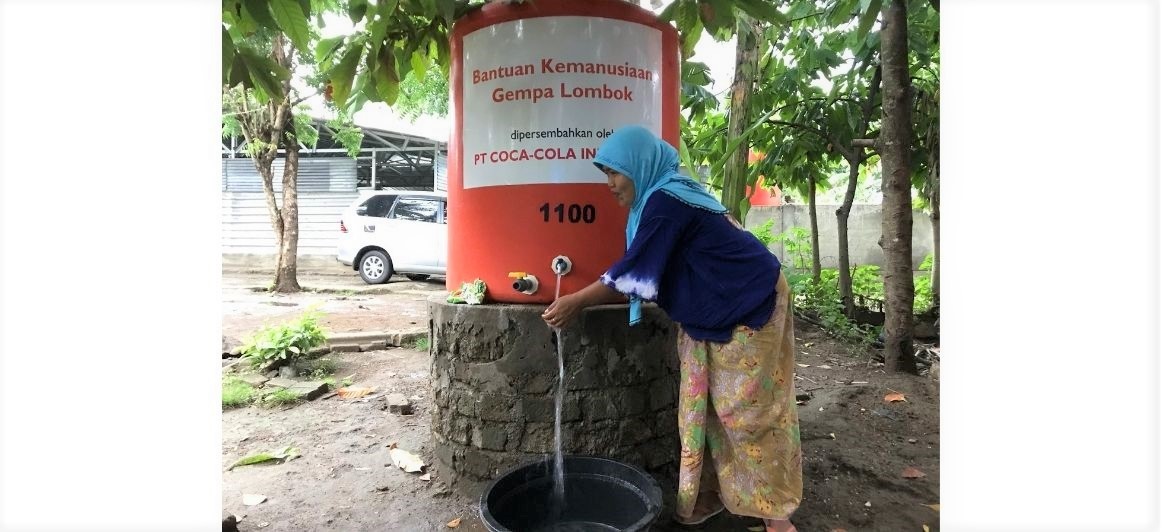Waste Versus Mangrove: Facing Barriers to Protect

Every morning, Salam (60 years old) faithfully begins his day working in his fish pond. This middle-aged man has been making a living from fishing for crabs or fish and repairing his pond to prevent leaks since his youth. To this day, Salam is actively working as a fish pond farmer, managing one of the government's asset lands.
In May 2024, Salam first met Wahana Visi Indonesia (WVI) through the Mangrove Adaptive and Resilient Village for Enhanced Livelihoods (MARVEL) program. Salam and other fish pond farmers were involved in planting mangroves in their pond areas. Initially, Salam and some of the fish pond farmers thought that the mangrove plants would hinder their fish farming activities, which they had been doing for many years. However, the consistent mentoring provided by WVI dispelled these doubts. "Throughout my involvement in planting mangroves, this is the first time I have experienced mentoring from planting to caring for the planted seedlings," said Salam.
The spirit of mentoring felt by Salam led him to diligently and responsibly care for each mangrove seedling planted in his pond area. Every morning, Salam faithfully cleans up 5-8 kg of plastic waste after the tide recedes so that the mangrove seedlings entrusted to him by WVI can survive. His principle is that everyone can plant mangroves, but not everyone can care for them.
Currently, amidst extreme weather conditions, the mangrove plants that Salam has diligently cared for remain sturdy and healthy. Salam hopes that the mangrove plants he has planted and cared for will benefit the future of his children and grandchildren as well as the younger generation in his area.
Mangroves indeed have an important role in maintaining environmental sustainability, which is closely related to adaptation and reducing the impact of the climate crisis. The mangrove planting initiative is also a mitigation step because mangroves can absorb carbon, which causes the greenhouse effect.
For fish pond farmers like Salam, whose livelihood comes from the sea, mangroves are a protective guard for biodiversity that still exists today. Mangroves also play a very important role in protecting the coastal areas where Salam lives from the threat of abrasion.
The plastic waste that has become a problem for mangroves in Salam's area is actually also a threat that cannot be ignored. Adaptation, mitigation, and reducing the impact of the climate crisis must take place simultaneously and harmoniously so that the efforts made by farmers to protect the environment are not in vain.
Author: Eka Situmorang (MARVEL Project staff in Simokerto)
Editor: Mariana Kurniawati (Communication Executive)


